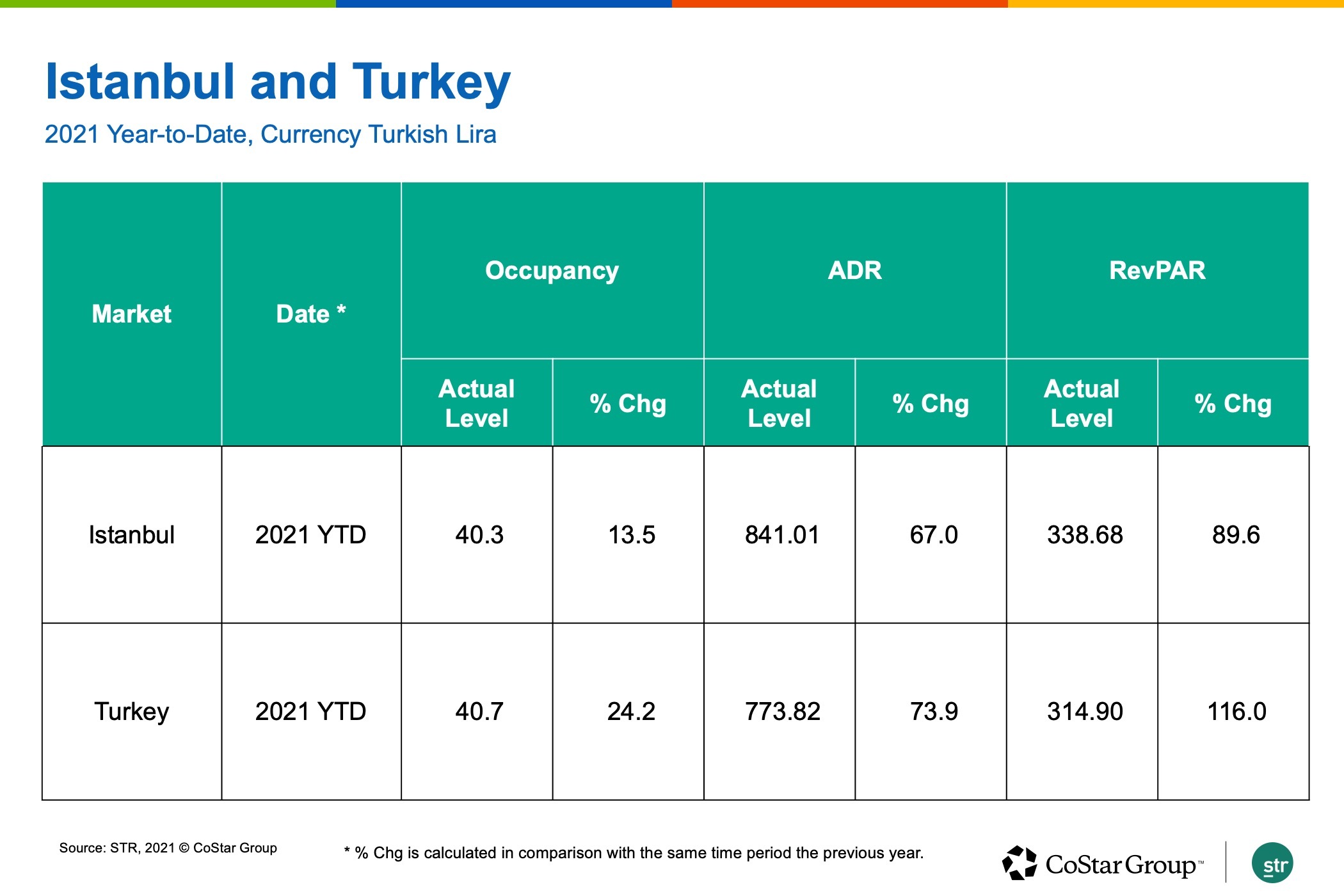The United Kingdom’s recent shake-up of foreign travel rules has bolstered the Turkish hospitality industry, prompting many hotels to extend their autumn season, but the industry still has a long way to go to completely recover from the pandemic.
Most Turkish hotels, especially those in sunny leisure destinations, have managed to bounce back from the unimaginably low occupancy levels of the 2020 summer season, when international travel restrictions due to the COVID-19 pandemic were strictest.
In July 2021, Turkey was visited by 4.3 million tourists, a fourfold rise compared to July 2020, according to statistics from the Turkish Culture & Tourism Ministry.
This year, 25 million tourists are forecast, compared to only 17 million in 2020. The bounce back is largely attributed to the return of guests from Russia, Germany and the Middle East, with gains projected to push all hotel and hospitality revenue up to $20 billion, compared to $12 billion in the previous year. In 2019, Turkey attracted 51 million foreign visitors, who brought $35 billion into the country.
Eren Turan, sales manager at Liberty Lara Hotel, said that despite the significant rise in the number of foreign visitors, this season remained extremely challenging in Antalya, one of Turkey’s most-popular Mediterranean resort destinations.
He added Turkey has fared well due to stringent government measures, including a mass vaccination campaign.

Brits Are Back
Turan said the absence of British tourists was the main setback of the 2021 season, but hotel performance is improving.
“With the numerous challenges we have encountered in the 2021 summer season, we currently stand at around 80% to 85% occupancy,” he said.
The U.K. government has up until now kept Turkey on its “red” list, which means travelers returning to the U.K. have to quarantine in a hotel at their expense for 10 days. On Sept. 17, Turkey was moved off that list.
“In order to cover the shortfall left by the U.K. market, we have had adapted and sourced tourists in new markets,” Turan said.
He added that Turkish hoteliers expected the U.K. decision to permit easier travel to and from Turkey. Now as many as 200,000 Brits are expected to visit the country by the end of the current season.
The return of British tourists has encouraged Turkish hoteliers, Turan said.
However, according to data from STR, CoStar’s hotel analytics firm, the Turkish hotel industry has a lot of catching up to do.
In 2021 year-to-date performance, occupancy across the country reached only 40.7%, up from 24.2% in the same period of the previous year, but far lower than what branded Turkish hotels are accustomed to.
Average daily rate for the same period climbed by 73.9% to 774 Turkish liras ($87), while revenue per available room rose by 116% to 314 Turkish liras.
Hotels in Istanbul have reported similar improvement in performance, with occupancy reaching 40.3% year to date in 2021, compared to 13.5% in 2020. ADR increased 67% to 841 Turkish liras and RevPAR increased 89.6% to 339 Turkish liras.
Resorts Rebounding
Uğur Ecel, rooms division manager at Vonresort Hotels, also based in Antalya, said the distinctive feature of 2021 was the extremely high share of last-minute bookings, which was estimated to be close to 20%.
He said most hotels in Turkey opened in June, a little later than usual, but operated well until mid-August, when occupancy dipped.
Ecel said he expects it will take at least one more year for the Turkish hospitality industry to reach pre-crisis performance.
The recovery so far has been uneven, with hotels traditionally relying on Russian tourists experiencing a stronger surge in occupancy than those used to counting on Brits and other Europeans.
“Of course, performance is not like in 2019, but it’s great and getting better. Every hotel that opened its doors to the guest made a big profit. I can easily say that the 2021 summer was like there wasn’t any pandemic,” said Fırat Balbozan, sales and marketing executive at Bellis Deluxe Hotel, an Antalyan hotel that enjoys high popularity with Russians.
“There wasn’t any availability beginning with April 20, and we [did] not have any rooms available until Sept. 30,” Balbozan said, adding that that next season is likely to be better for the entire Turkish hospitality sector.
Geylan Dursunoglu, general manager at the Doora Hotel, in Bodrum, another popular Mediterranean resort, said most hotels achieved solid performance in the summer, with occupancy standing at around 85% in July and 90% in August.
“We had a little decline due to the wildfires we experienced at the beginning of August, but August was a good month,” he said, adding September and October occupancy dropped to 60% and below.
He said many hotels are expected to shut down in October, slightly earlier than usual.
Judging from forward bookings, Turan added his hotel is looking forward to an “extremely favorable, promising and buoyant 2022 summer season.”
